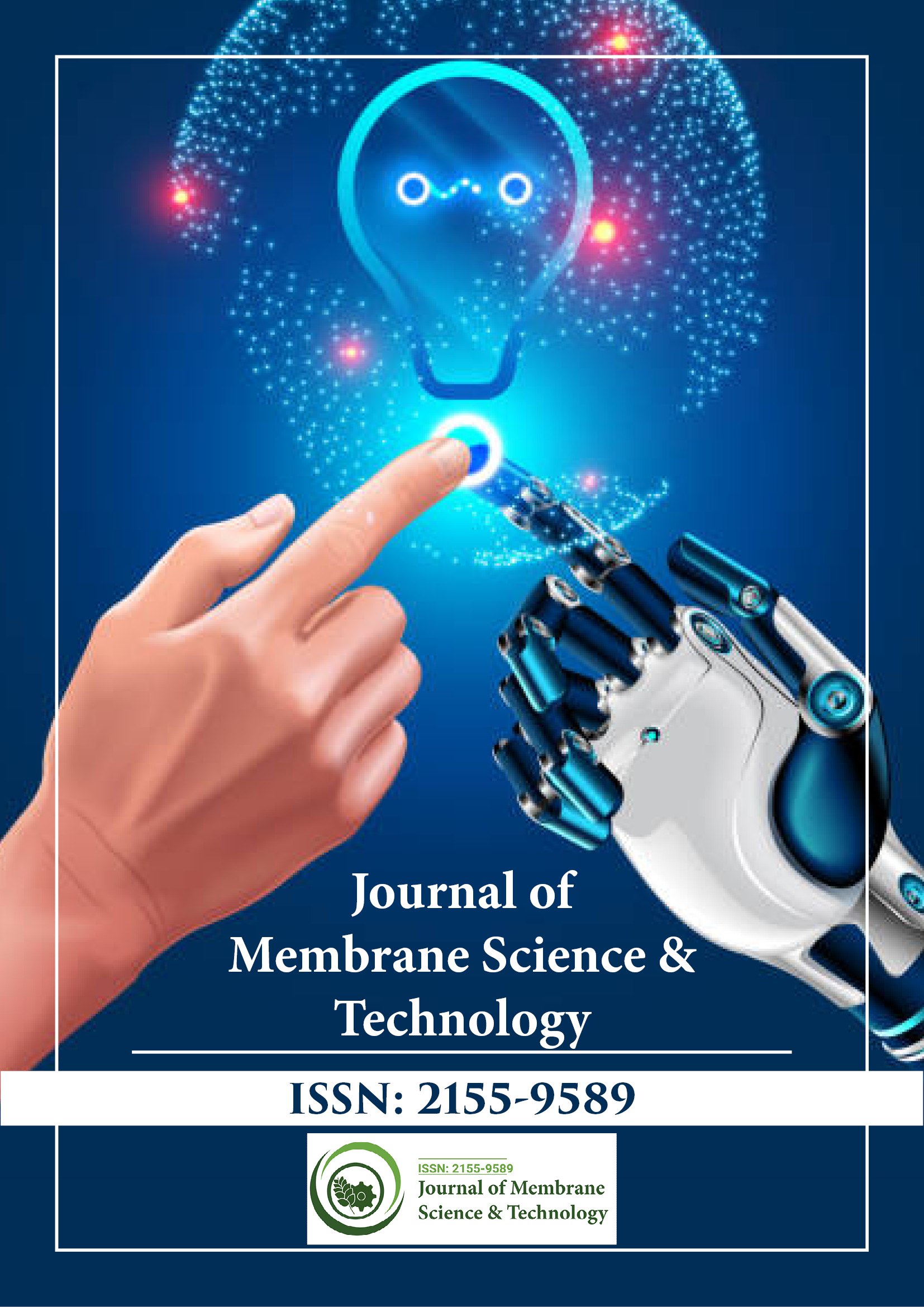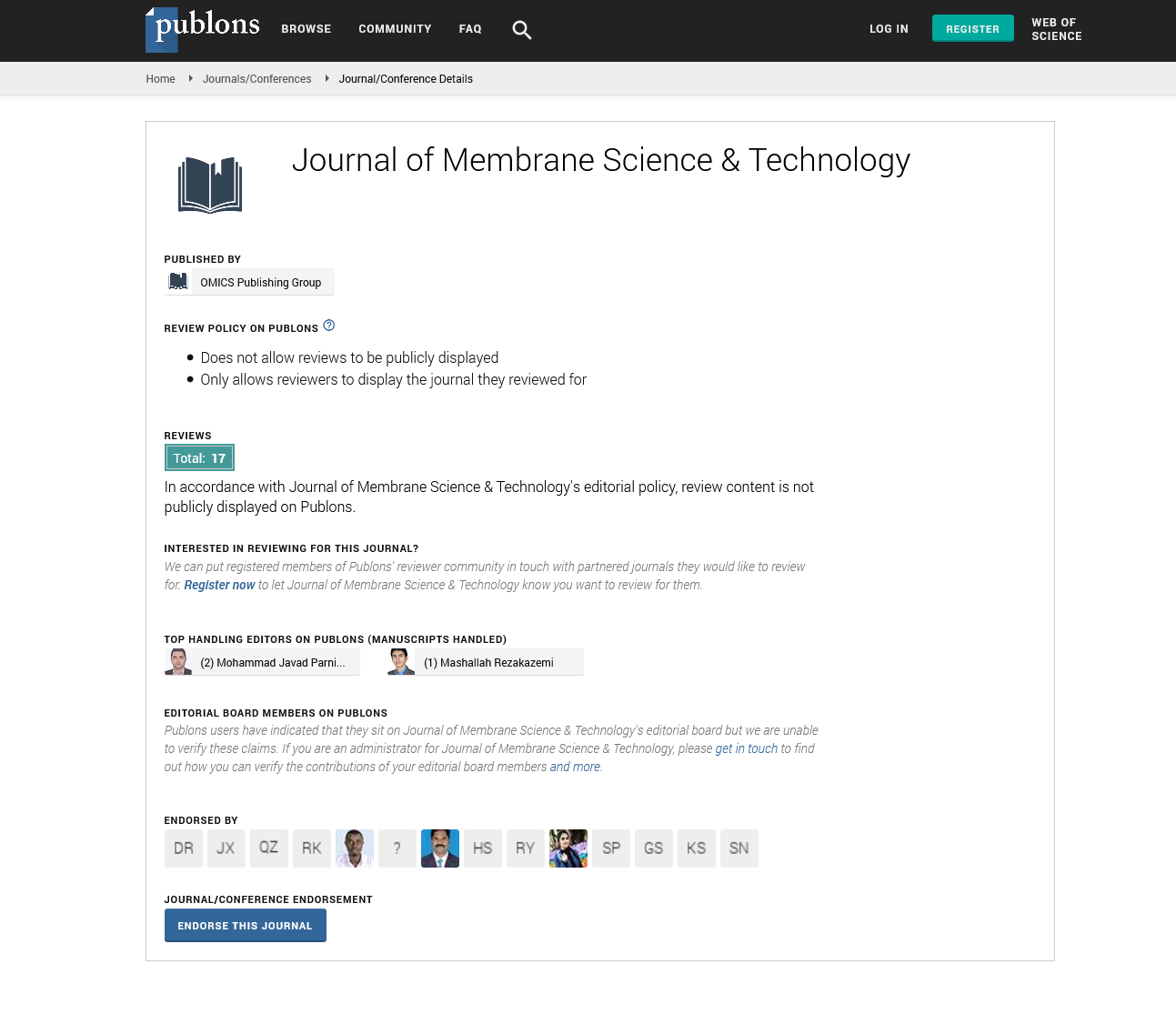Indexed In
- Open J Gate
- Genamics JournalSeek
- Ulrich's Periodicals Directory
- RefSeek
- Directory of Research Journal Indexing (DRJI)
- Hamdard University
- EBSCO A-Z
- OCLC- WorldCat
- Proquest Summons
- Scholarsteer
- Publons
- Geneva Foundation for Medical Education and Research
- Euro Pub
- Google Scholar
Useful Links
Share This Page
Journal Flyer

Open Access Journals
- Agri and Aquaculture
- Biochemistry
- Bioinformatics & Systems Biology
- Business & Management
- Chemistry
- Clinical Sciences
- Engineering
- Food & Nutrition
- General Science
- Genetics & Molecular Biology
- Immunology & Microbiology
- Medical Sciences
- Neuroscience & Psychology
- Nursing & Health Care
- Pharmaceutical Sciences
The synthesis of zeolitic imidazolate framework-95/matrimid mixed matrix membranes for CO2, CH4 and H2 separations
International Conference on Membrane Science and Technology
September 11-12, 2017 | Paris, France
Ilke Ilicak, Mehtap Safak Boroglu and İsmail Boz
University of Istanbul, Turkey
Scientific Tracks Abstracts: J Membra Sci Technol
Abstract:
Global warming is affect negatively such as loss of biodiversity, rising sea levels, transition of ecosystems, and reduction in value and variety of agricultural products. Membrane-based gas separation has a few advantages over traditional separation techniques. It has several industrially and economically important processes such as air purification, flue gas treatment, natural gas purification, hydrogen recovery from plant, and refineries. The permeability and selectivity of membranes are important to select materials for efficient separation. Polymeric membranes generally have been improved by incorporating the inorganic high surface area particles to enhance either the gas pair selectivity or the permeances. Zeolitic Imidazolate Frameworks (ZIFs) have emerged as a novel type of crystalline porous material for the preparation of superior molecular sieve membranes attributed to their zeolite-like properties such as permanent porosity, uniform pore sizes, and exceptional thermal and chemical stability. In this work, zeolitic imidazolate framework-95 (ZIF-95) particles were prepared and incorporated into Matrimid® 5218 polyimide matrix, with loadings varying between 0 and 30 wt.%. Matrimid mixed matrix membranes (MMMs) loaded with different amounts of ZIF-95 were prepared by solution casting method and the interaction between ZIF-95 and matrimid was characterized by x-ray diffraction (XRD), scanning electron microscopy (SEM), fourier transform infrared spectroscopy (FT-IR) and thermogravimetric analysis (TGA). Gas separation performance of Matrimid® 5218 /ZIF-95 mixed matrix membranes (MMMs) with various ZIF-95 percentages were analyzed at 35 °C and 4 bar pressure. Surface and cross-sectional scanning electron microscopy images of the mixed matrix membranes (MMMs) were taken to serve the dispersion of particles in the polymer matrix. Results show that prospects and potential new development of ZIF materials are presented.
Biography :
Ilke Ilicak has received her BS degree in Chemical Engineering (2014), from Beykent University, Turkey. She has been studying as an MSc Student at Istanbul University, Faculty of Engineering, Chemical Engineering Department since May 2015. Her research interests include polymer synthesis and characterization, gas separation.

